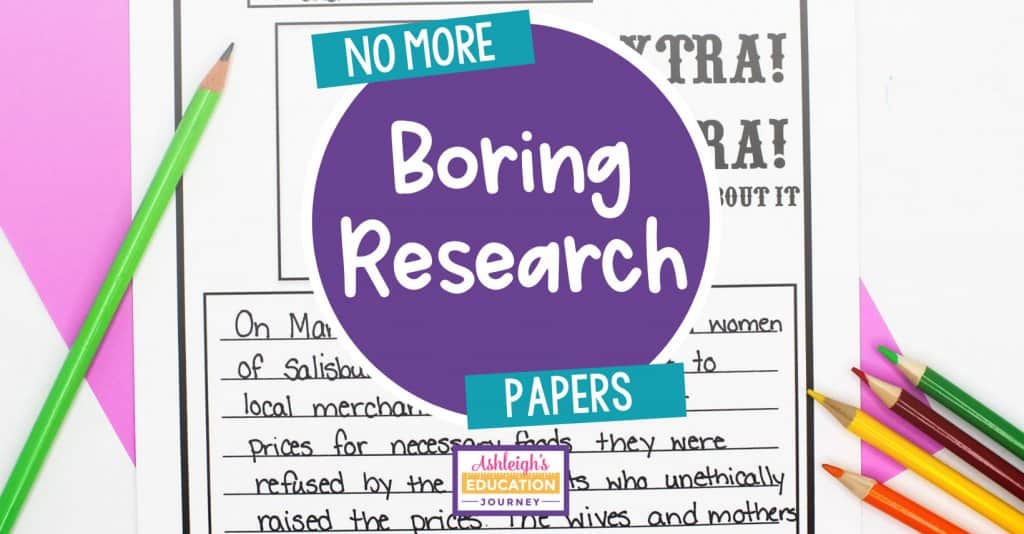
In this post you’ll find FUN research project ideas for upper elementary students! I certainly remember completing my fair share of boring research projects in elementary school. We go to the library to find an encyclopedia to take notes on our topic. Then, we would write a traditional five paragraph essay. Fun stuff! Maybe I’m dating myself, but the only thing exciting about the research project was getting out of class!
Fortunately, it doesn’t have to be that way…not even close! With the research project ideas and presentation resources now available to students, the possibilities are almost endless. Students still need our guidance and structure within their projects. Otherwise they tend to become overwhelmed and lack a clear direction.
With these research project ideas, I’ve found that it helps to have a broad theme for research projects-such as animals, biographies, ecosystems, etc. Students can then pick their topic from your class’s theme. One of my favorite ideas is center the project around geography and to have students research a state or country. Most students have a very limited background knowledge and become really interested in whichever location they choose to study.
I love using this resource, because it has a twist full of research project ideas! It’s a perfect addition to your informational writing unit or reference skill lessons. This research project gives students choice and flexibility when researching states and/or countries. To present their findings, students complete various activities until they earn up to 100 total points. There are 10, 25-, 50-, and 75-point activities, where the more challenging activities are worth the most points. Students may choose to complete several smaller activities, a couple of larger activities, or any combination.
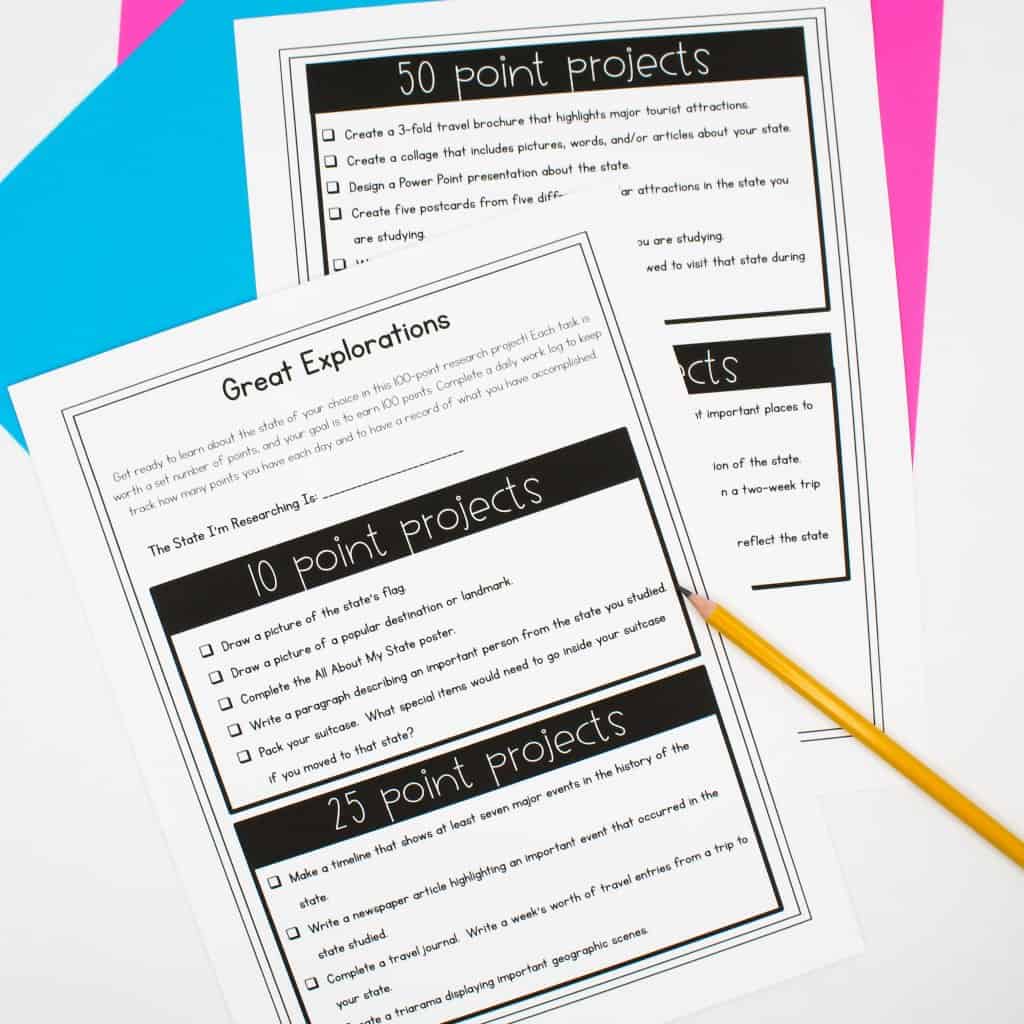
Research Project Ideas – Task Cards
There is a wide variety of activities to address many different learning styles and student interest. I’ve also created thorough direction cards for each of the activities. I’ll print and laminate a few copies of each card, so that I can use them year after year.
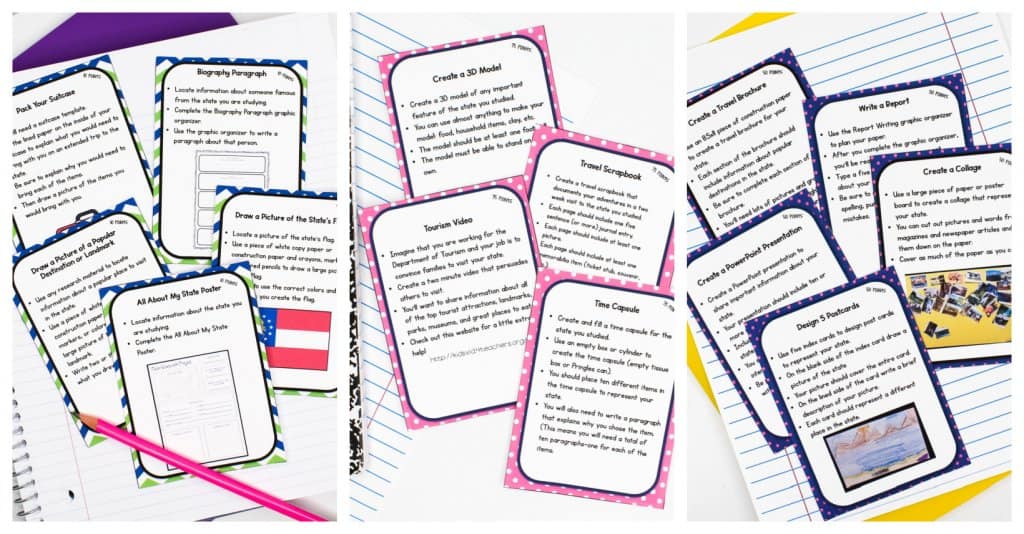
I’ve included any printables that students may need for the project. There is both a state version and a country version of the printables, because in any research project students need the guides to be as specific as possible.
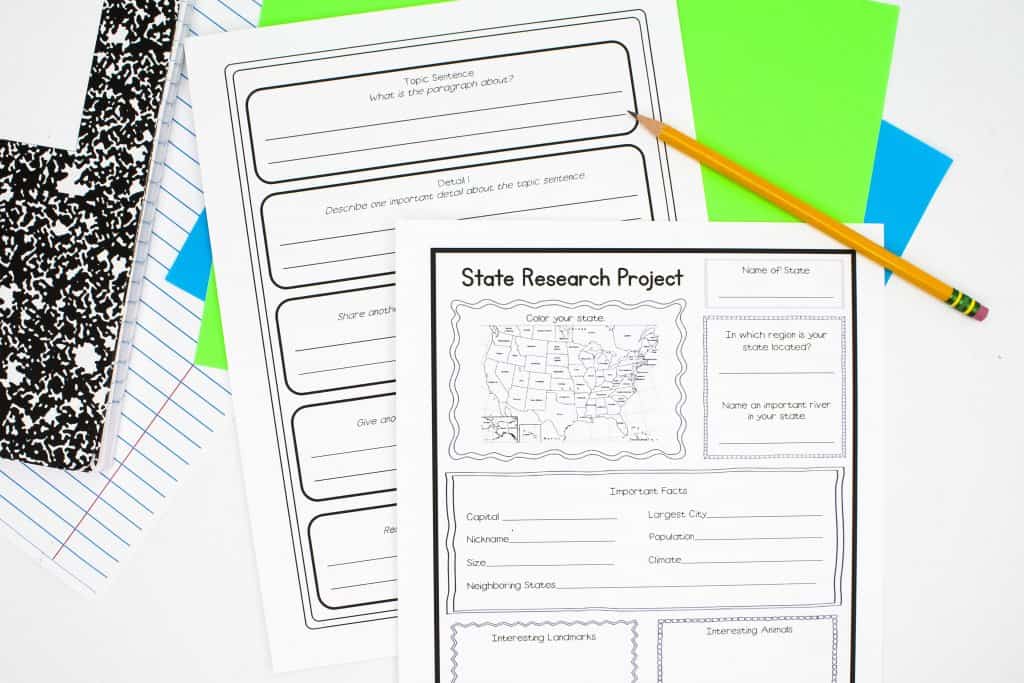
Research Project Ideas – Example Activities
There are too many activities in this research project that students can choose from to share in one blog post, but here are some of my favorites!
In the Pack Your Stuitcase activity, students create a booklet where they describe the items they would need to bring with them if they were going to that state/country. I included a color and black and white version of a suitcase, as well as lined and unlined paper. Students can cut out the pages and staple to create the booklet. To save time, I have a few of these prepared in advance.
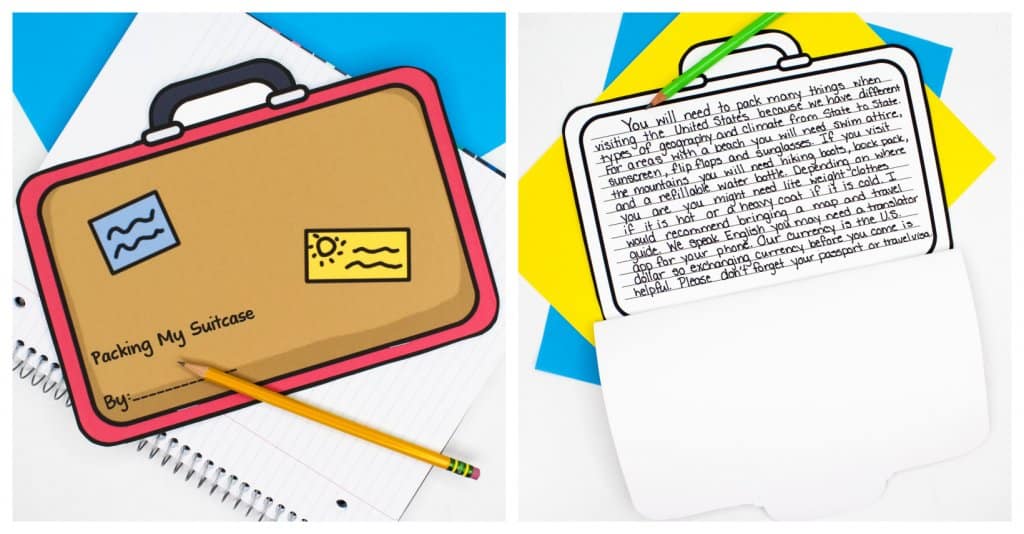
The Daily Journal newspaper article looks deceptively easy. However, writing a concise paragraph with all necessary information can be quite a challenge! It’s also a great way to tie in main idea into your instruction!
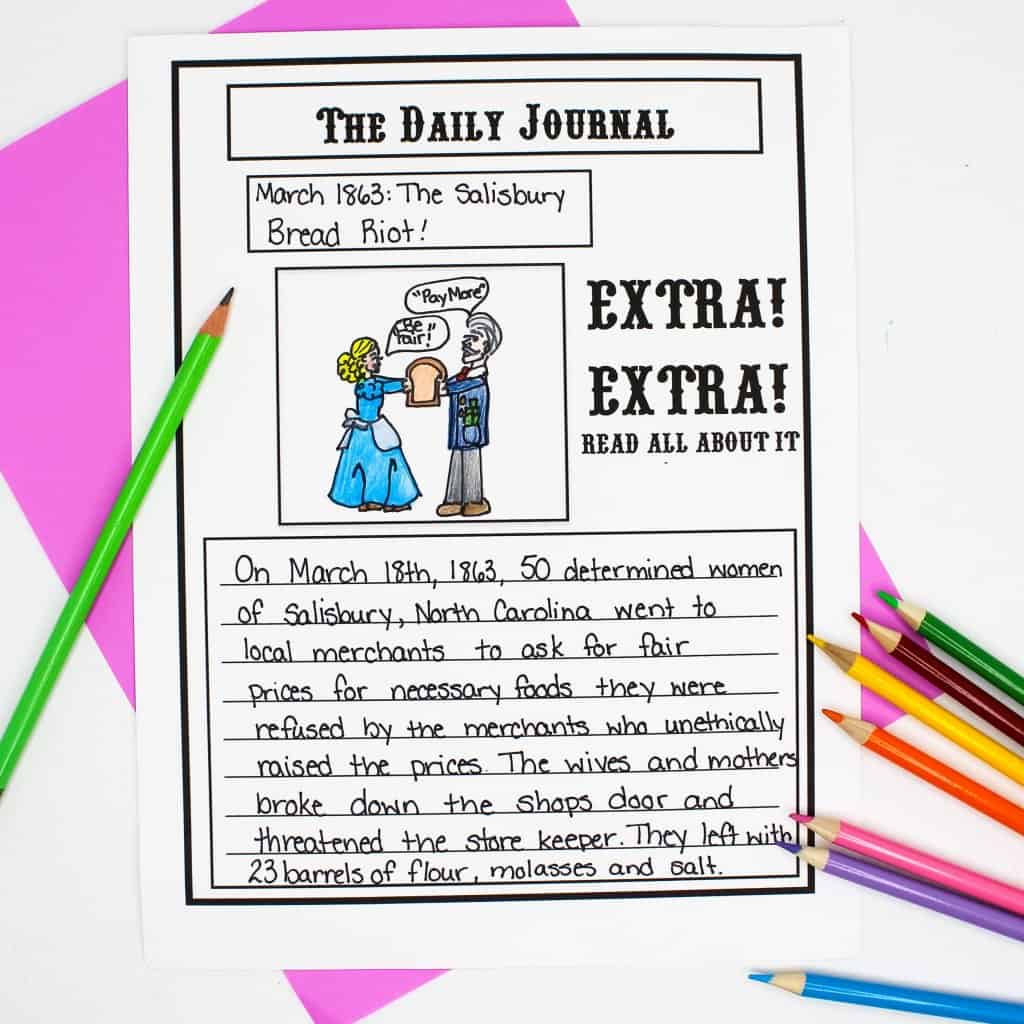
The travel journal requires just a little preparation. Print out a book cover and a journal entry page for each day of the week. Then, cut them out and staple the pages together. Once again, I like to have a few booklets made in advance.
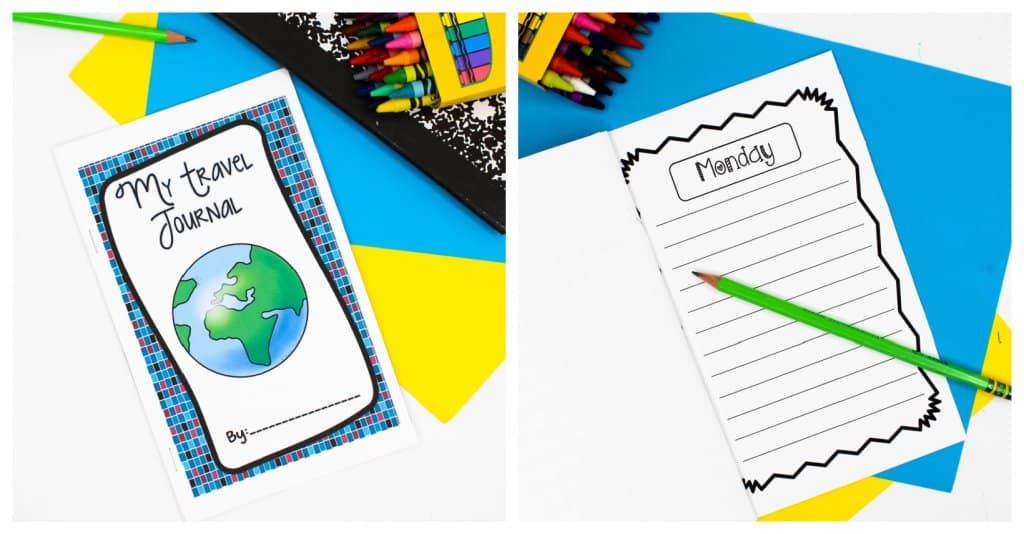
There is something about a triarama that is just cool. I’m not sure what it is, but students love it! I do too! They look far more complicated to build than they actually are, and they’re a great way to incorporate art and creativity into students’ research projects.
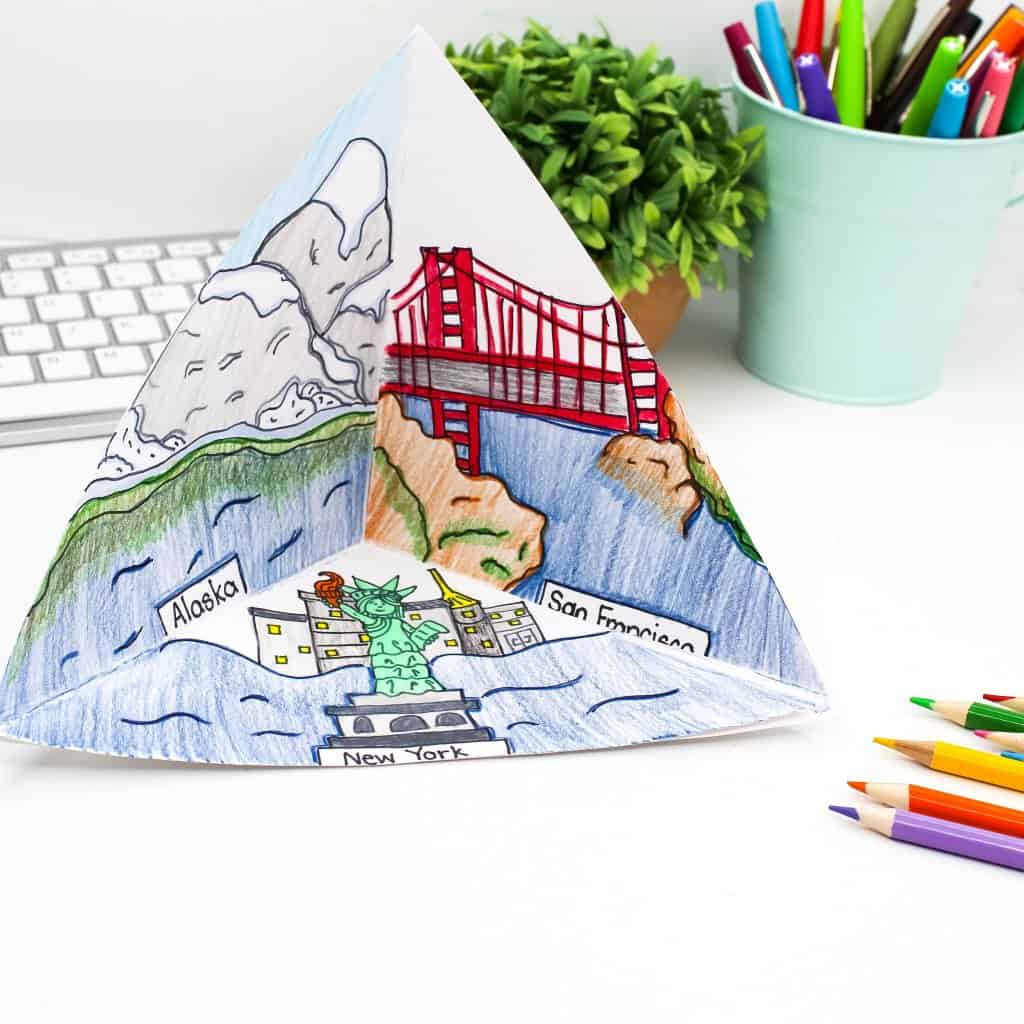
There are more traditional activities included in the collection of research project ideas, such as an informational essay. I included a detailed graphic organizer to give students plenty of support for independent writing.
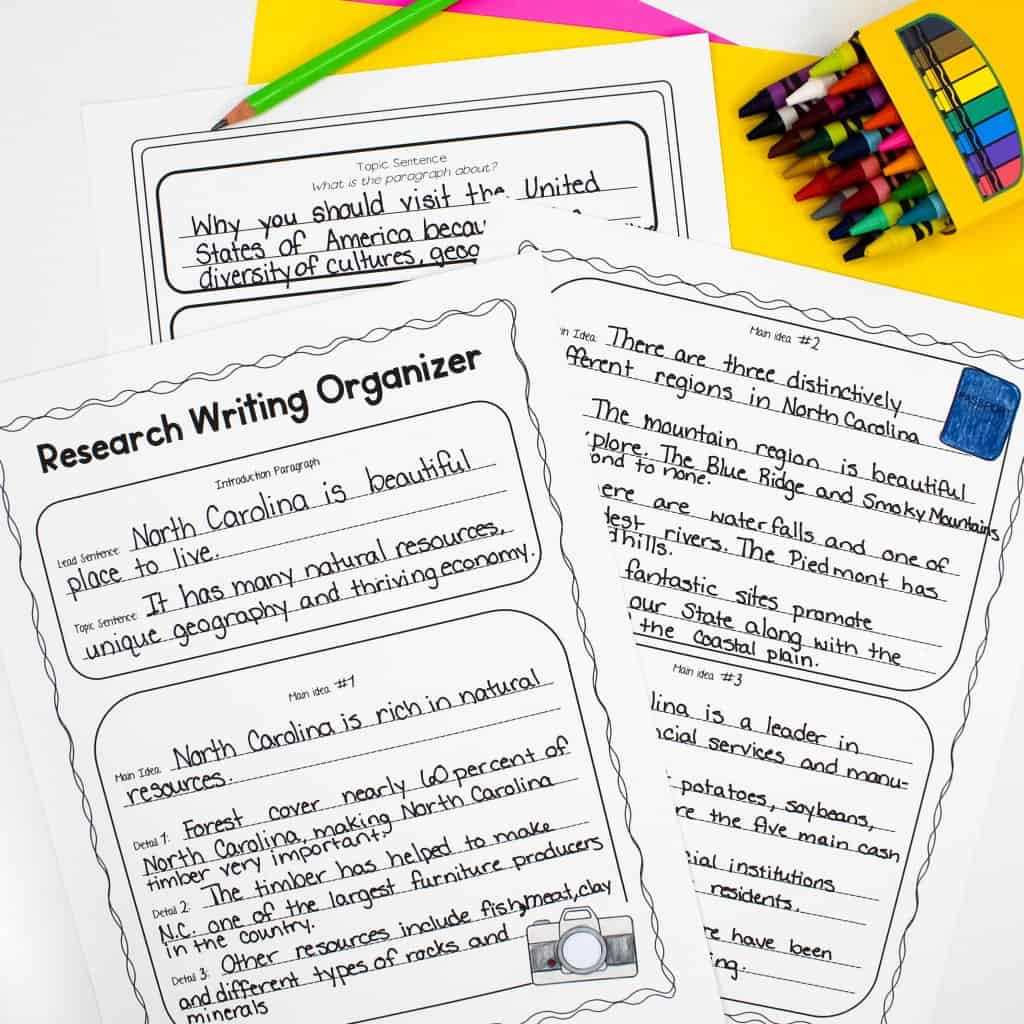
Some other research project ideas include activities such as a time line, post cards, and the brochure do not require any printables. Students may use common classroom supplies such as index cards and copy paper for these activities.
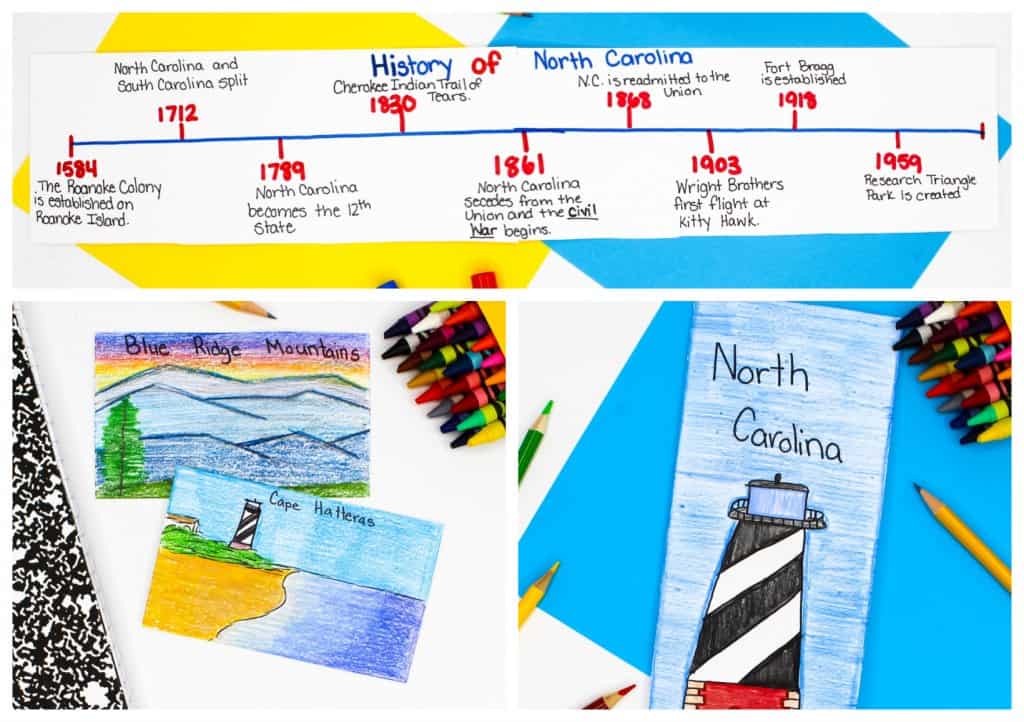
Research Tips
Before implementing these research project ideas, students have to be taught HOW to research. A project like the state/country research project should not be implemented until students have experience with research.
1. Evaluate Sources – Students must learn to evaluate the information found in their sources. Discuss how to evaluate a website: Is the information up to date?, Does the site ask for too much personal information or prompt virus warnings? Does the information come from a trusted expert?
2. Ask Good Questions – I imagine we’ve all conducted unsuccessful Google searches! Students need to learn to develop search queries to get better research results. Too often, students will enter a broad search term such as “George Washington,” and browse through pages of results that aren’t related to their research. For practice, give small groups three search terms each, ranging from the general to the specific (e.g., “presidents,” “George Washington,” and “George Washington’s birthday”). Ask the groups to record how many results are returned for each term. Encourage groups to come up with three alternate search terms for the most specific item on their lists. Students can compare the results and discuss how changing a few words can generate different information.
3. Respect Ownership – Students also need to learn to respect the intellectual property rights of creators. Have students to write about what it would feel like to have a book published. Have students share how they would feel about their accomplishment. Then, introduce the idea of piracy and have students share how they would feel if someone downloaded their book without paying for it. You can use this discussion to lead into a conversation about plagiarism.
Hopefully, you’ve found some new research project ideas that your students will love! I like to teach these tips during my Informational Writing Unit and let this research project follow those lessons.
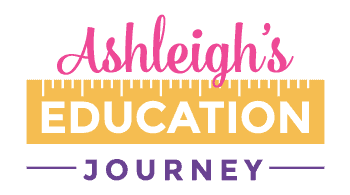
Ashleigh,
I love this idea as a follow up to your informational writing unit. The variety of activities and student choice opportunities are a great idea.
Thank you for your post!